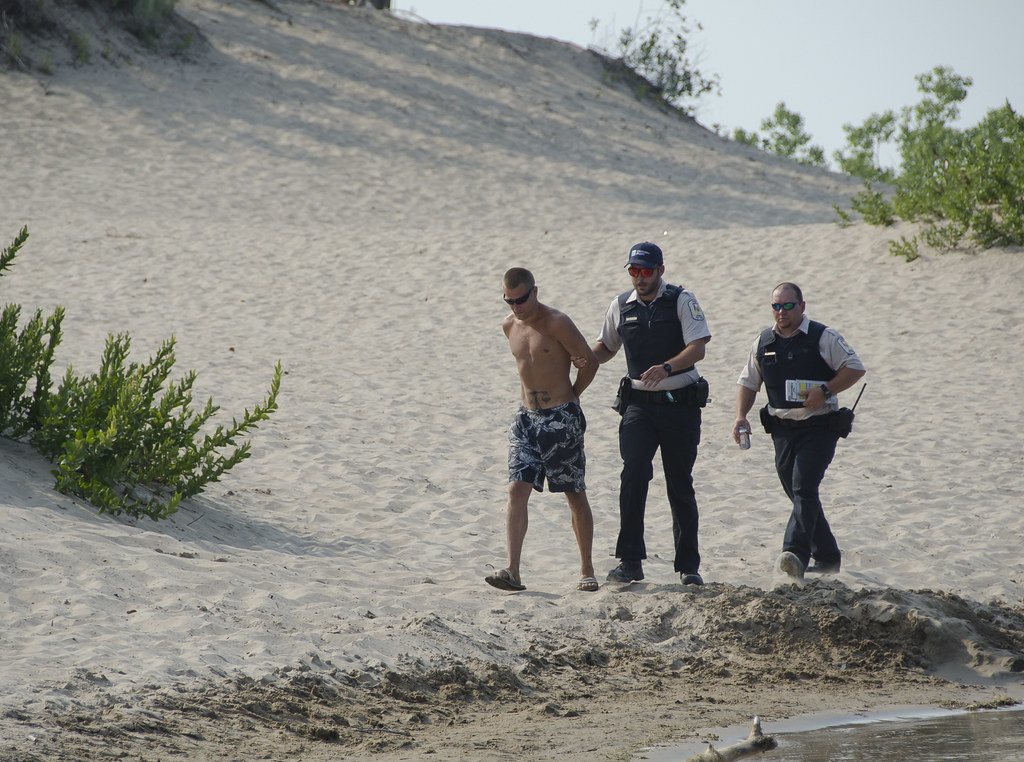Charged with a Class B Misdemeanor in Texas?
Contents
- Charged with a Class B Misdemeanor in Texas?
- Misdemeanors in Texas: An Overview
- What is a Class B Misdemeanor in Texas?
- Class B Misdemeanor Theft Texas
- Texas Class B Misdemeanor Sentencing
- Enhanced Misdemeanor Penalties in Texas
- Texas Class B Misdemeanor Lawyer
- FAQs about Class B Misdemeanors in Texas
- How long does a Class B misdemeanor stay on your record in Texas?
- Can a Class B misdemeanor be dropped in Texas?
- What is the first offense for a Class B misdemeanor in Texas?
- What is the difference between a Class B and Class C misdemeanor in Texas?
- Will I go to jail for a Class B misdemeanor Texas?
- Can you get probation for a Class B misdemeanor in Texas?
- How often do first time misdemeanor offenders go to jail Texas?
- What is the lowest class misdemeanor in Texas?
- What level of misdemeanor is most serious?
- What is the most typical punishment for a first-time misdemeanor?
- Can a first-time misdemeanor be dismissed in Texas?
- What is the most serious misdemeanor in Texas?
- Final Word
A Class B misdemeanor (Tex. Penal Code Ann. § 12.22) is punishable by up to 180 days in county jail and up to a $2,000 fine. A conviction for a class B misdemeanor will stay on your criminal record forever and prevent you from obtaining gainful employment – which is why it’s essential to hire an experienced criminal defense lawyer dedicated to keeping your record clean.
Offenders charged with a Class B misdemeanor usually appear before a judge for an arraignment. During this hearing, offenders can either plead guilty or not guilty; if they assert guilty, then sentencing is generally determined at that time. If an offender pleads not guilty, then they have the right to request a jury trial, during which evidence must be presented by both parties to prove innocence or guilt beyond a reasonable doubt.

The most common class B misdemeanor offenses are:
- Theft – Taking property belonging to someone else without their consent, with a value between $50 and $500
- First-Offense DWI – Driving While Intoxicated, with a blood alcohol content (BAC) of .08 or higher, first offense*
- Indecent Exposure – Intentionally exposing one’s genitals in a public place
- Criminal Trespass – Entering or remaining on someone else’s property without their consent
- Prostitution – Offering or agreeing to engage in sexual conduct for a fee
- Failure to Pay Child Support – Willfully failing to make court-ordered child support payments
- Minor Drug Possession of less than 2 ounces of marijuana or other controlled substances
- Harassment Intentionally – harassing or annoying someone else
- False Report to a Police Officer – Knowingly making a false report to a law enforcement officer
- Possession of Marijuana under two oz.
* mandatory driver’s license suspension of 90-365 days, and completion of a DWI education program
Misdemeanors in Texas: An Overview
Texas is known for its tough stance on criminal offenses, with misdemeanors making up a significant portion of the cases that come to court each year. It is essential to have a comprehensive understanding of the types of misdemeanors that exist within the Lone Star State, as well as the likely penalties associated with them.
Types of Misdemeanors
Misdemeanor offenses are generally non-violent crimes or acts of property damage that, if found guilty, can result in fines and/or prison sentences. Some of the most common types of misdemeanors in Texas include first offense DWI, second offense DWI, family assault violence, possession, and theft.
Penalties for Misdemeanors
The penalties associated with misdemeanor charges depend heavily on their severity and your individual case and may range from fines to jail time. Depending on the crime committed, misdemeanors in Texas are typically classified as:
- Class A (up to 1 year in county jail and/or a maximum fine of $4,000)
- Class B (up to 180 days in county jail and/or a maximum fine of $2,000)
- Class C (limited to a maximum fine of $500)
Examples of each category may include burglary of a vehicle (Class A), making terrorist threats or possession of up to 2oz of marijuana (Class B) and possession of paraphernalia (Class C).
What is a Class B Misdemeanor in Texas?
If you are a resident of Texas, understanding the classifications of misdemeanors is essential. Class B misdemeanors are a subcategory of all misdemeanors and can lead to severe consequences if convicted. This article will explore what qualifies as a Class B misdemeanor in Texas and the repercussions of committing such an offense. We will also cover potential defenses and how to move forward if you face a Class B misdemeanor charge.
A wide array of class B misdemeanor charges encompassing the full spectrum of criminal offenses. Attorneys routinely defend a variety of Class B Misdemeanor charges in Texas – including the following crimes:
- Disorderly Conduct (involving a firearm),
- Evading Arrest,
- Failure to ID (identify) by giving false identification to police,
- Possession of a controlled substance,
- Silent or Abusive Calls to 911,
- Misdemeanor Terroristic Threats, and
- Driving with license suspended or invalid.
Attorneys routinely defend Texas Class B Misdemeanor charges of all types all across the state. In a competitive job market, you can’t afford a criminal record because of a Class B misdemeanor conviction. Defense attorneys also provide local jail release (attorney writ bonds), removal of warrants, bond reductions, and probation violation representation for Class B misdemeanors in Texas.
In Texas, Class B Misdemeanors are the second-most serious misdemeanor offense. As such, they carry more severe punishments than Class C Misdemeanors, the least serious misdemeanor offenses.
Class B Misdemeanor Theft Texas
In Texas, Class B Misdemeanors are considered crimes of “modest” proportions. For example, offenses such as shoplifting items worth up to $100 or writing bad checks of up to $500 can constitute a Class B Misdemeanor. Importantly, theft is also one of the types of conduct that can be charged as a Class B Misdemeanor.
Under Texas Penal Code Section 31.03, theft is defined as taking another person’s property without their consent and with the intent to deprive them of it. The amount stolen must be worth between $50 and $500, which is why stealing something valued at lower than $50 is typically charged as a Class C, rather than a Class B, Misdemeanor. However, if the value of the stolen goods exceeds $500, then the charge can become a more serious crime—theft of property with a value exceeding $500 is considered a state jail felony.

If you’re convicted of a Class B Misdemeanor Theft in Texas, the potential penalties include up to six months in jail, a fine of up to $2,000, and community service. You may also be required to pay restitution to the victim in order to make up for some or all of the losses they sustained due to your actions.
Fortunately, there are several possible defenses you can use against a charge of Class B Misdemeanor Theft in Texas. First of all, you can argue that you had the intention of returning the goods at some point in the future. Furthermore, if you were falsely accused or if your actions resulted from duress or necessity, these factors could also affect the outcome of your case. It’s important to consult with a criminal defense lawyer to determine which defense strategy is best suited for your circumstances.
Texas Class B Misdemeanor Sentencing
A misdemeanor sentence is usually imposed quickly or shortly after a guilty plea or verdict. Other punishment possibilities include jail time, fines, fees, restitution, community service hours, and no-contact orders. The judge may impose alternative sentences, such as confinement in a treatment facility for chemical dependency or mental health difficulties. Additional options are available in most minor instances.
Depending on the severity of the offense, the punishment for a Class B Misdemeanor can range from a fine of up to $2,000 to a jail sentence of up to 180 days or a combination of both. Additionally, a conviction may include probation, community service, or other forms of rehabilitation.
Enhanced Misdemeanor Penalties in Texas
Repeat misdemeanor offenses in Texas carry harsher punishments. In some cases, the general enhancement of the legislation applies. Other misdemeanors, such as assault, theft, and domestic violence, carry harsher penalties if you have a past conviction for the same or a comparable offense.
These penalties increase the punishment for certain misdemeanors, including DWI and Aggravated Assault. The new penalties took effect on September 1st, 2017. Under the new law, DWI will now be a Class B misdemeanor with a fine of up to $4,000 and up to 180 days in jail. Aggravated Assault will now be a Class A misdemeanor with a fine of up to $10,000 and up to 2 years in jail. These are among the most severe misdemeanors that can still result in probation instead of prison time. These enhanced penalties were passed as part of HB 2299, signed into law by Governor Greg in 2017.
Some misdemeanors carry higher penalties throughout the Texas Penal Code when the defendant targets a vulnerable or protected individual, targets a victim based on bias or prejudice, or commits the act in a proclaimed disaster or evacuation region. An increased penalty may raise the degree of the violation or impose a mandatory minimum jail sentence.
Texas Class B Misdemeanor Lawyer
A Texas misdemeanor lawyer will fight to keep a Class B Misdemeanor conviction from staining your permanent criminal record. We will explore dismissal options, Class C misdemeanor reductions, pretrial diversion, and deferred adjudication possibilities – not to mention winning your case at trial – all to ensure your eligibility for expunction or nondisclosure of your criminal record in the future. Contact an attorney today for a free consultation and to find out what options may be available to you.
FAQs about Class B Misdemeanors in Texas
How long does a Class B misdemeanor stay on your record in Texas?
Class B misdemeanors remain on an individual’s criminal record for up to two years. This is standard in the state of Texas and applies to all classifications of misdemeanors up to and including Class A misdemeanors. After two years, the offense will generally no longer appear on a person’s public record.
Can a Class B misdemeanor be dropped in Texas?
Generally speaking, Class B misdemeanors are eligible to be dropped from one’s criminal record, depending on the circumstances. In Texas, those convicted of a Class B misdemeanor may qualify to have their charge dismissed through deferred adjudication or pretrial diversion programs.
What is the first offense for a Class B misdemeanor in Texas?
First offenses for Class B misdemeanors in Texas will usually incur a citation or warning rather than a criminal conviction. However, if the violation is considered particularly serious, the individual may face a fine of up to $2,000, jail time of up to 180 days, or both.
What is the difference between a Class B and Class C misdemeanor in Texas?
A Class B misdemeanor in Texas carries a maximum sentence of 180 days in jail and a fine of up to $2,000. These charges can range from relatively minor infractions such as disorderly conduct or public intoxication, to more serious crimes such as assault causing bodily injury or criminal mischief. Meanwhile, Class C misdemeanors cannot result in jail time and usually carry a maximum fine of $500.
Will I go to jail for a Class B misdemeanor Texas?
It is generally unlikely that someone convicted of a Class B misdemeanor in Texas will serve jail time as a first-time offender. However, if their crime is considered particularly serious or they demonstrate no effort toward rehabilitation, the individual may receive jail time as part of their sentence.
Can you get probation for a Class B misdemeanor in Texas?
Probation is possible for certain Class B misdemeanor convictions in Texas. A judge will review the circumstances of the case and make a determination based on factors such as the severity of the crime and whether this is the offender’s first offense.
How often do first time misdemeanor offenders go to jail Texas?
First-time offenders of Class B misdemeanors in Texas are rarely sent to jail instead opting to offer fines and alternative sentences such as probation or community service hours. The decision ultimately rests with the judge in each case.
What is the lowest class misdemeanor in Texas?
In Texas, Class C misdemeanors are considered the lowest level of misdemeanor offenses. They include violations such as speeding, liquor law violations, theft of services under $100, and minor drug possession charges.
What level of misdemeanor is most serious?
A Class A misdemeanor is typically considered the most serious category of misdemeanor crimes in Texas. These offenses can result in up to one year in jail and potentially hefty fines. Examples include DWI charges, some drug-related offenses, and driving with an invalid license.
What is the most typical punishment for a first-time misdemeanor?
Punishments vary depending on the severity of the offense and other applicable factors. However, for most first-time misdemeanor offenses in Texas, individuals may be subject to fines, mandatory classes or counseling programs, community service hours, restitution payments, and/or probationary periods.
Can a first-time misdemeanor be dismissed in Texas?
Depending on specific criteria, an individual may be able to have their charge dismissed through deferred adjudication or other similar pretrial diversion programs offered by the court system in Texas.
What is the most serious misdemeanor in Texas?
A Class A misdemeanor is typically regarded as the most serious level of misdemeanor offenses in Texas. Offenses that fall into this category often involve possessory crimes, alcohol violations, traffic violations (such as Driving While Intoxicated/Impaired), and other related matters. Depending on the circumstances involved, these crimes can carry penalties ranging from fines to more severe punishments such as jail time.
Final Word
Class B misdemeanors are serious offenses that carry severe consequences in Texas. Therefore, anyone convicted of a Class B misdemeanor must seek legal advice to understand their rights and the potential effects they face. The penalties for a conviction can be substantial and may include jail time, fines, and community service. Furthermore, the impact of a criminal record can be long-lasting and should not be taken lightly.




